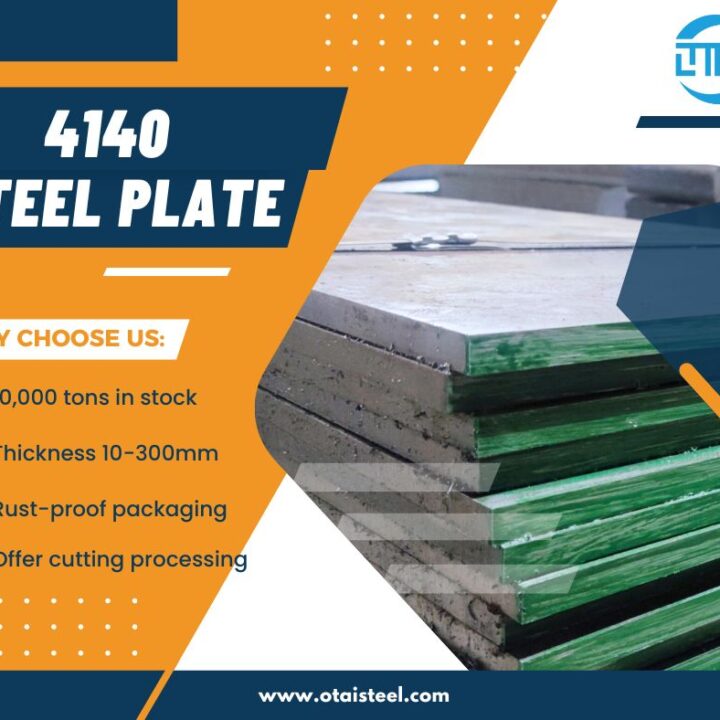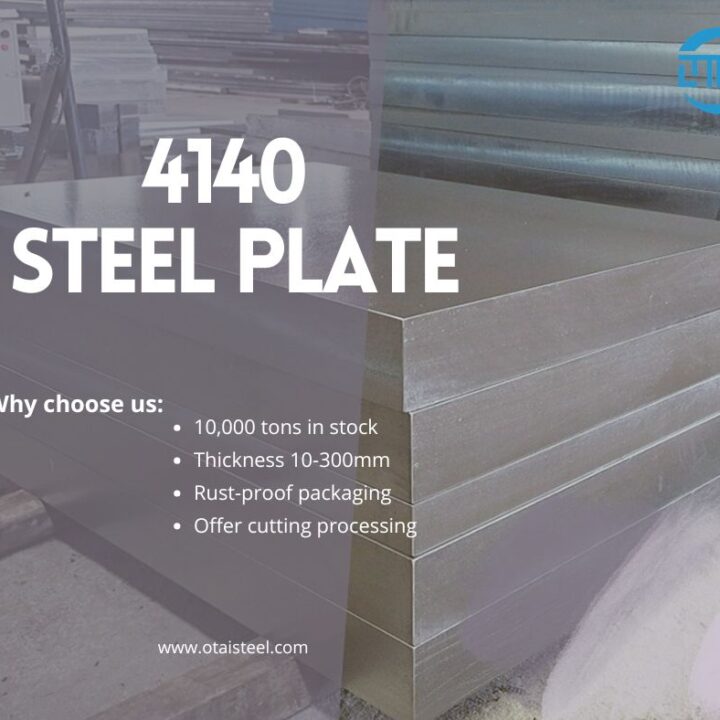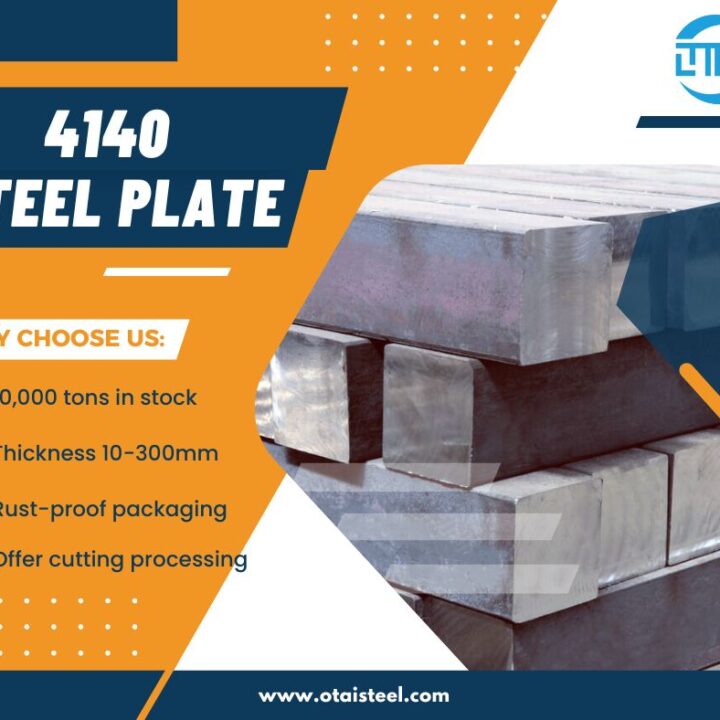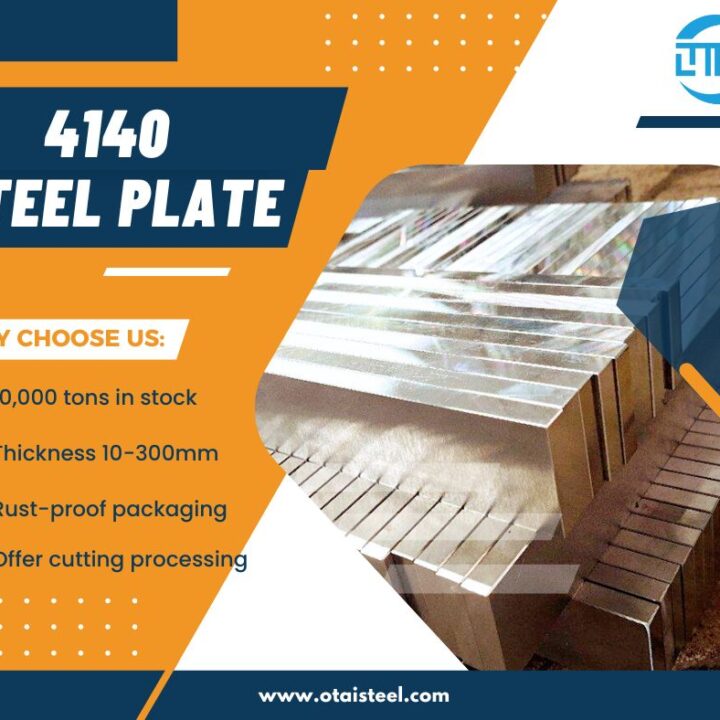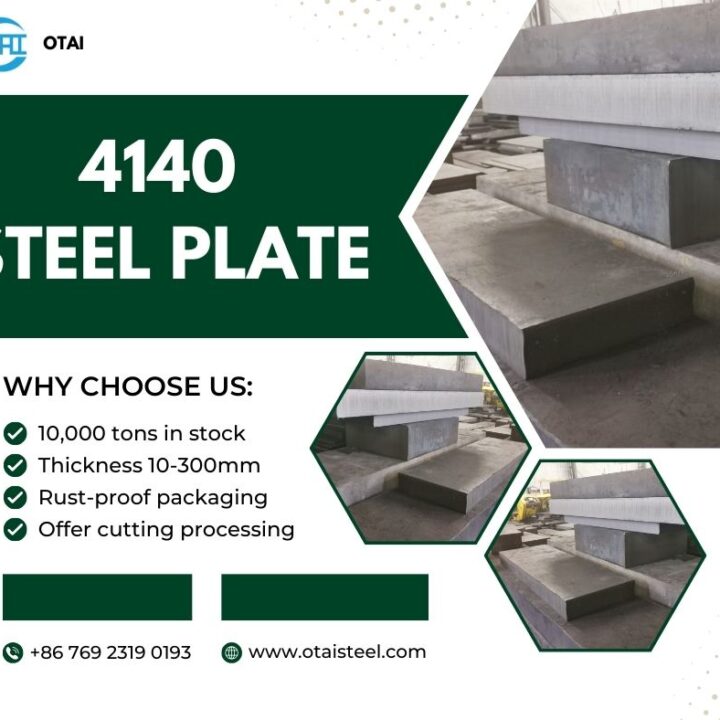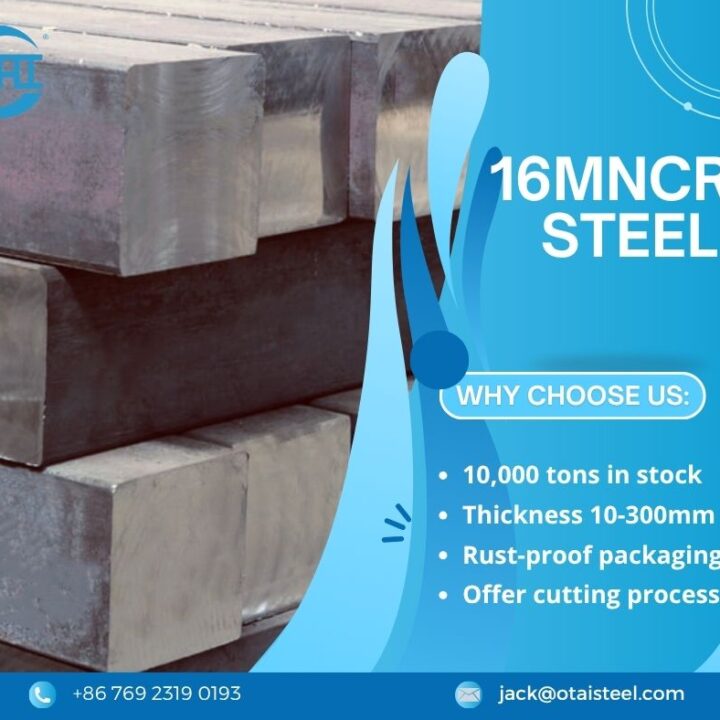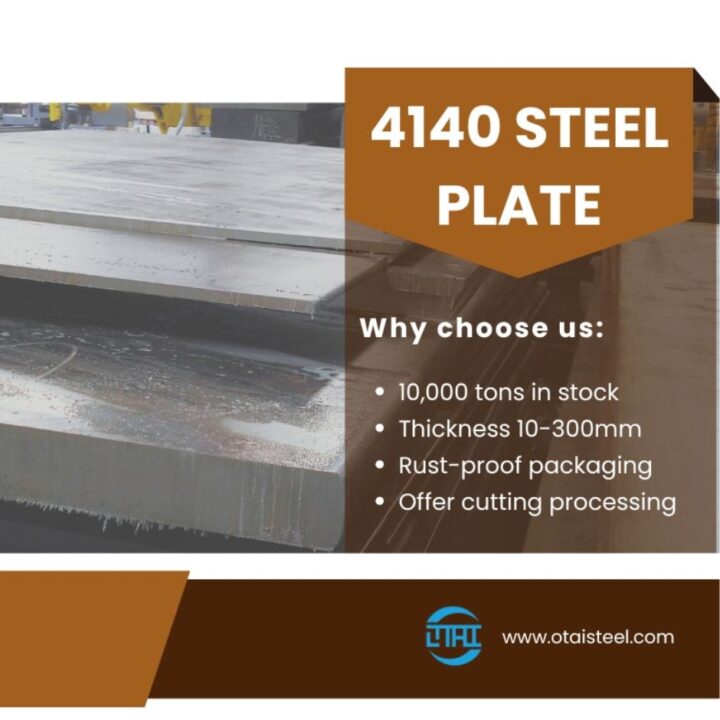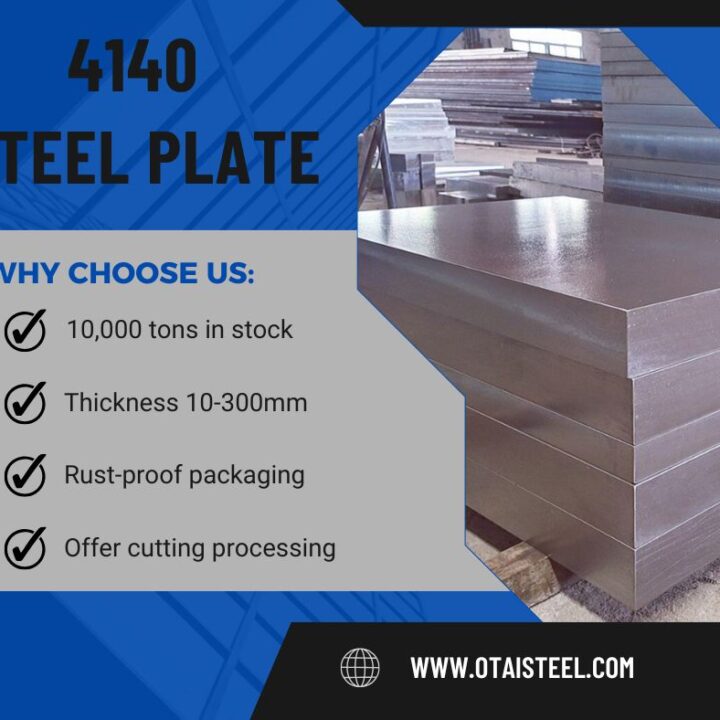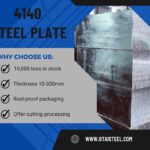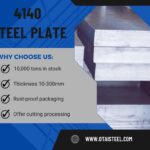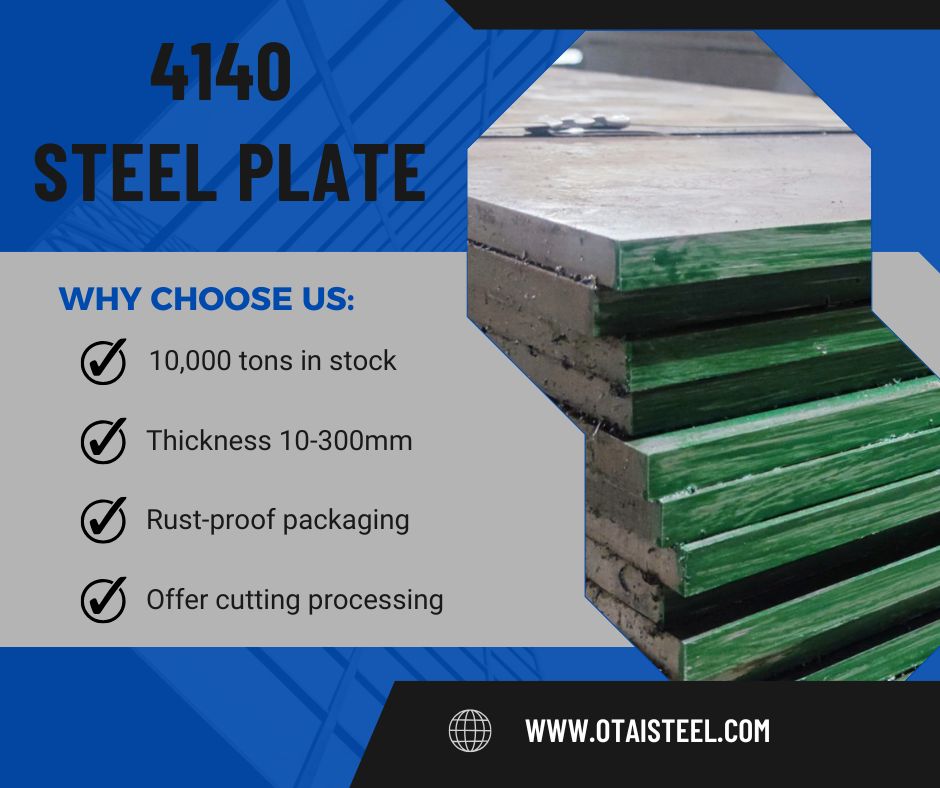
When it comes to selecting materials for manufacturing and engineering projects, steel is always at the center of the discussion. But with so many options available, how do you know which one fits your project? Among the countless grades, 4140 steel is one of the most widely used because of its outstanding balance of strength, toughness, and machinability. In this guide, we’ll break down how 4140 steel stacks up against other steels in terms of mechanical properties, applications, and cost-effectiveness.
🌟 What is 4140 Steel?
4140 steel is a chromium-molybdenum alloy steel that belongs to the family of low-alloy steels. Its composition usually includes:
-
Carbon: 0.38–0.43%
-
Chromium: 0.8–1.1%
-
Molybdenum: 0.15–0.25%
-
Manganese: 0.75–1.0%
This specific chemistry allows it to achieve high tensile strength after heat treatment, while still maintaining good toughness and wear resistance. One of the main reasons buyers prefer 4140 over basic carbon steels is because it offers higher fatigue resistance and better hardenability, making it suitable for critical parts such as gears, shafts, and axles.
🔍 Comparing 4140 Steel and Other Steel Grades
To make the choice easier, let’s compare 4140 steel with other popular steel grades used in different industries.
| Steel Grade | Type | Yield Strength (MPa) | Rockwell Hardness (HRC) | Typical Applications |
|---|---|---|---|---|
| 4140 steel | Alloy Steel | 655–1080 | 28–32 (annealed), 50+ (quenched/tempered) | Shafts, gears, crankshafts, high-stress parts |
| A36 steel | Mild Carbon Steel | ~250 | <20 | Construction beams, structural supports |
| 4340 steel | Nickel-Chromium-Moly Alloy | 745–1080 | Up to 50+ | Aerospace components, landing gear |
| 1045 steel | Medium Carbon Steel | ~530 | 22–30 | Machinery parts, axles |
| 8620 steel | Low-Alloy, Carburizing Steel | ~400 | Up to 60 (case hardened) | Gears, camshafts |
From this table, it’s clear that 4140 alloy steel bridges the gap between mild steels like A36 and ultra-high-strength alloys like 4340. It offers a good balance of cost, machinability, and mechanical strength.
🛠️ Why Choose 4140 Steel Over Others?
-
Better Wear Resistance than Carbon Steels
Compared with 1045 steel or A36 steel, 4140 steel shows superior resistance to wear and fatigue. This is particularly important in applications where components are subjected to repetitive stress, like automotive drive shafts or heavy-duty machinery gears. -
High Strength-to-Weight Ratio
Compared to mild steels, 4140 alloy steel delivers higher yield strength without adding significant weight. This makes it ideal for aerospace and automotive parts where weight reduction is critical. -
Versatility in Heat Treatment
One of the key differences between 4140 and many other steels is its ability to be quenched and tempered. 4140 steel heat treated can achieve Rockwell hardness values above 50 HRC, whereas mild steels cannot reach such levels. -
Good Machinability and Weldability
While steels like 4340 can sometimes be difficult to machine due to their high hardness, machining 4140 steel is comparatively easier. It strikes a balance between hardness and machinability, making it a favorite for machine shops.
⚙️ Applications
-
4140 Steel → Widely used in automotive, oil & gas, and industrial machinery for shafts, gears, drill collars, and hydraulic parts.
-
A36 Steel → Chosen primarily for construction due to its low cost and ease of welding.
-
4340 Steel → Used in aerospace for landing gear, high-stress bolts, and crankshafts due to its ultra-high toughness.
-
8620 Steel → Ideal for carburized gears, camshafts, and bushings because of its ability to form a tough surface with a softer core.
This highlights that 4140 is a versatile middle ground—affordable enough for general engineering but tough enough for demanding applications.
📊 Mechanical Property Comparison – 4140 vs Other Steels
To give you a better picture, here’s how 4140 stacks up against other steels in mechanical properties:
| Property | 4140 Steel | A36 Steel | 1045 Steel | 4340 Steel |
|---|---|---|---|---|
| Ultimate Tensile Strength (MPa) | 1080 (quenched/tempered) | 400–550 | ~620 | 1080–1180 |
| Yield Strength (MPa) | 655–1080 | ~250 | ~530 | 745–1080 |
| Elongation (%) | 20–25 | 20+ | 16–18 | 10–15 |
| Toughness | High | Moderate | Good | Very High |
This shows that while 4340 offers extreme toughness, 4140 alloy steel is more cost-effective and easier to machine, making it a more balanced choice for many industries.
💡 Practical Tips for Choosing Between 4140 and Other Steels
-
If cost is the main factor, A36 or 1045 may be sufficient.
-
If you need case hardening for gears, 8620 steel is better.
-
If you need ultra-high strength with toughness, 4340 is the choice.
-
But if you want a balance of strength, toughness, machinability, and cost, 4140 steel is the go-to option.
🌍 Company Advantages – Why Choose Otai Special Steel?
At Otai Special Steel, we specialize in supplying 4140 steel plates, bars, and tubes in a wide range of dimensions. Our advantages include:
-
📦 Large stock availability: Over 10,000 tons ready for shipment.
-
🔍 Quality assurance: Ultrasonic testing, chemical composition analysis, and SGS third-party inspection.
-
⚙️ Processing services: Cutting, heat treatment, and custom machining available.
-
🌐 Global clients: Trusted by top corporations like Thyssenkrupp and Schlumberger.
-
💰 Cost-effective supply chain: Competitive prices with guaranteed stable quality.
❓ FAQ
Q1: Is 4140 stronger than A36?
Yes, 4140 steel is significantly stronger and harder than A36 steel. A36 is used mainly for construction, while 4140 is designed for high-stress mechanical parts.
Q2: How does 4140 compare to 4340?
4340 steel is tougher and stronger, but more expensive and harder to machine. 4140 is a more balanced and versatile option.
Q3: Can 4140 be welded like A36?
Yes, but it requires preheating and post-weld heat treatment to avoid cracking due to its higher carbon content.
Q4: Is 4140 more wear-resistant than 1045?
Yes, thanks to its alloying elements (chromium and molybdenum), 4140 has higher wear and fatigue resistance than 1045.
Q5: When should I choose 8620 over 4140?
If surface hardness and core toughness are required—like in gears or camshafts—8620 with carburizing is better. Otherwise, 4140 works well for general engineering parts.

